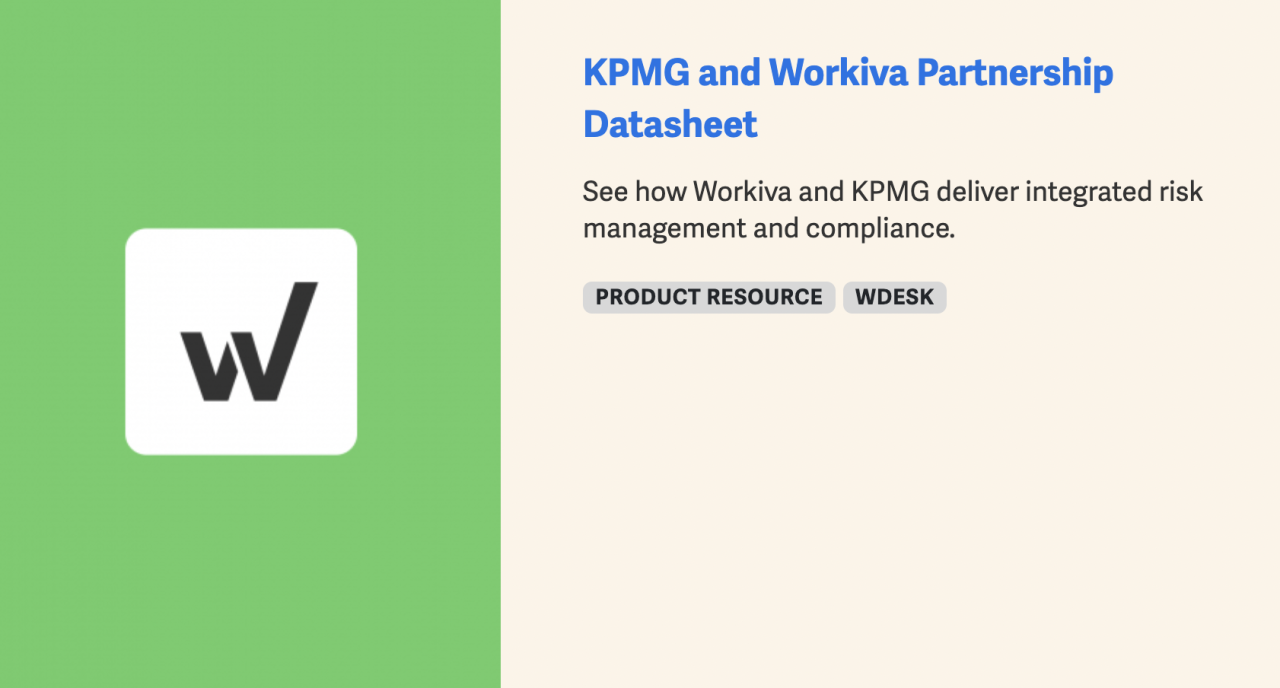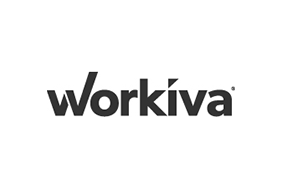What the Financial Industry Is Asking About ESG Reporting
Published 01-21-22
Submitted by Workiva

Originally published on Workiva
By Bryce Wagner & Mark Mellen
Though banks and lenders have been watching environmental, social, and governance (ESG) issues for years, the demands to publicly report on their ESG performance are growing.
Seven in 10 individual investors believe organizations have a responsibility to demonstrate ESG performance, and they want companies to use data to help them judge ESG efforts, according to a recent survey commissioned by Workiva, the business reporting platform.
At KPMG, consultants have noticed a few trends influencing how financial institutions have been advancing their ESG reporting processes and what questions remain to be resolved.
Common ESG reporting challenges for banks
Today, reporting on ESG performance—as well as how a lender evaluates ESG risk and creates ESG-related products—is often managed manually across many teams. At KPMG and Workiva, clients have told us they want to efficiently collect data to respond to different ESG frameworks and maintain consistent disclosures, without creating too much duplicative work for internal data providers.
A big trend we're starting to see is companies trying to find ways to make those processes more efficient, to increase the confidence in the information they're using.
We are seeing more companies start to:
- Centralize ESG data collection
- Create data dictionaries as a first step in data governance
- Use reporting technology, such as ESG data collection software or data management software, to automatically collect data from disparate sources like general ledgers, human capital management (HCM) systems, enterprise risk management (ERM) systems, and enterprise resource planning (ERP) tools.
ESG ownership
ESG reporting is still evolving, even for lenders that have created corporate social responsibility and sustainability reports for years. A consensus has not yet emerged of who should own ESG reporting. It could be anyone from SEC reporting teams, corporate communications, investor relations, legal, or human resources teams. Sometimes a cross-functional committee oversees the report.
A few members of the financial industry have said if stakeholders expect the same rigor and reliability from ESG data as they do from financial data reported to the SEC, finance teams that produce SEC filings may end up owning ESG reporting as well.
As for who owns ESG data, companies are trying different models. In a distributed model, data ownership is spread across the organization. That way, subject matter experts can own and develop the data specific to their areas, whether it’s within human resources, research, or board governance, for example.
Similar to Sarbanes-Oxley processes (SOX) or a Comprehensive Capital Analysis and Review (CCAR), a SOX compliance or CCAR team might own documentation, but subject matter experts might maintain documentation for the underlying data that’s part of their practice.
Climate disclosure regulations
Michael Scarpa, Managing Director in the KPMG Regulatory Risk practice, notes many recent actions financial regulators have taken on ESG matters.
In the U.S.:
- The Securities and Exchange Commission is preparing a proposed mandate for climate risk disclosures
- The Federal Insurance Office is seeking comments on how it can collect data to help stakeholders assess climate risk in the insurance sector
- The Office of the Comptroller of the Currency this year appointed a Climate Change Risk Officer to help develop and adopt climate risk management practices at banks
- The Federal Reserve and Consumer Financial Protection Bureau also have focused on ESG, including social impacts of providing fair access to mortgages and financing
The United Kingdom is working toward mandatory climate-related disclosures by 2025. This year the Financial Conduct Authority (FCA) proposed climate-related financial disclosure rules for asset managers, life insurers, and FCA-regulated pension providers.
Meanwhile, businesses and investors are hopeful the creation of the International Sustainability Standards Board (ISSB) will start to simplify the worldwide landscape of ESG standards.
"Our clients are taking a very slow, incremental approach,” Michael said. "They're looking for practical ways to infuse ESG thinking into their risk management, specifically focusing on evaluating the customer base for ESG risks, and potentially also evaluating vendors and third parties to see where they stand with regard to ESG goals."
Sharing ideas
As ESG reporting evolves, teams can share ideas with peers at upcoming events hosted by KPMG and Workiva. Check out the Workiva calendar of events and webinars for more.
Some or all of the services described herein may not be permissible for KPMG audit clients and their affiliates or related entities.

Click here to see how Workiva and KPMG deliver integrated risk management and compliance.

Workiva
Workiva
Workiva Inc. (NYSE:WK) is on a mission to power transparent reporting for a better world. We build and deliver the world’s leading regulatory, financial and ESG reporting solutions to meet stakeholder demands for action, transparency, and disclosure of financial and non-financial data. Our cloud-based platform simplifies the most complex reporting and disclosure challenges by streamlining processes, connecting data and teams, and ensuring consistency. Learn more at workiva.com.
More from Workiva

